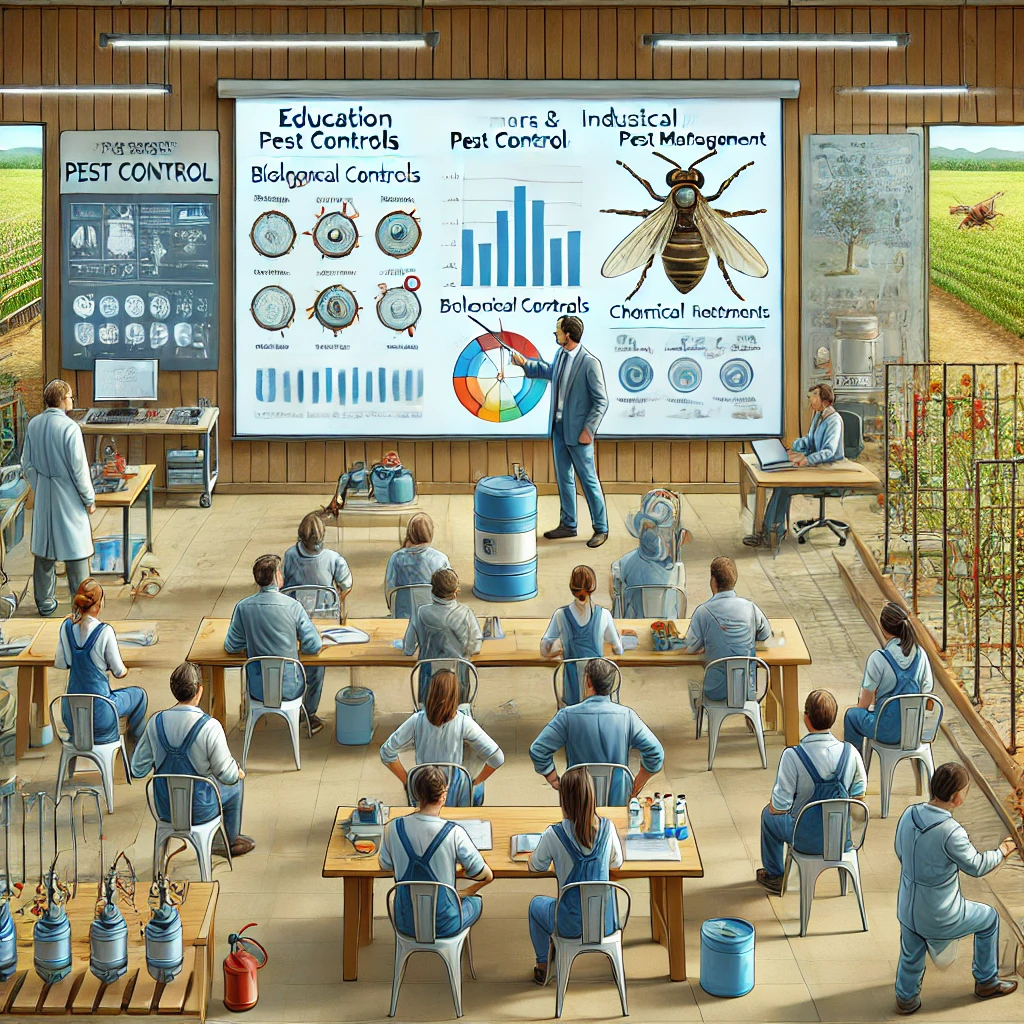Importance of Education in Pest Control
Education and training play a crucial role in effective pest control for both farmers and industry professionals. A well-informed approach to pest management can significantly reduce pest-related damage and enhance productivity. This essay highlights the importance of education and training in pest control, the benefits of comprehensive programs, and strategies for effective learning.
Understanding Pest Control Principles
Education in pest control begins with a foundational understanding of pest biology and control principles. Farmers and industry professionals must be familiar with pest life cycles, behavior, and the impact of various control methods. Training programs often cover integrated pest management (IPM) principles, which emphasize a combination of biological, cultural, mechanical, and chemical methods. By learning these principles, individuals can make informed decisions and apply the most effective control strategies.
Benefits of Comprehensive Training Programs
Comprehensive training programs offer numerous benefits. They provide participants with the knowledge to identify pests accurately, understand their impact on crops and products, and implement appropriate control measures. Training also covers safety protocols for handling pesticides and other chemicals, which is essential for protecting human health and the environment. Additionally, well-structured programs can help individuals stay updated on new technologies and advancements in pest control.
Hands-On Training and Practical Experience
Hands-on training is a critical component of effective education in pest control. Practical experience allows individuals to apply theoretical knowledge to real-world situations. Field demonstrations, laboratory exercises, and simulated pest scenarios provide valuable insights into pest behavior and control techniques. Practical training also helps individuals develop problem-solving skills and adapt to varying pest challenges in different environments.
Online Resources and Continuing Education
In addition to formal training programs, online resources and continuing education opportunities play a vital role in pest control education. Online courses, webinars, and digital tools offer flexibility and accessibility for busy professionals. These resources can cover a wide range of topics, from the latest pest control technologies to emerging pest threats. Continuing education ensures that individuals remain informed and equipped to handle evolving pest management challenges.
Collaborative Learning and Knowledge Sharing
Collaborative learning and knowledge sharing are essential for advancing pest control practices. Networking with peers, participating in industry forums, and engaging in professional associations provide opportunities for exchanging ideas and experiences. Collaborative efforts can lead to the development of innovative pest control solutions and the implementation of best practices across the industry.
Conclusion
Education and training are fundamental to effective pest control for farmers and industry professionals.

